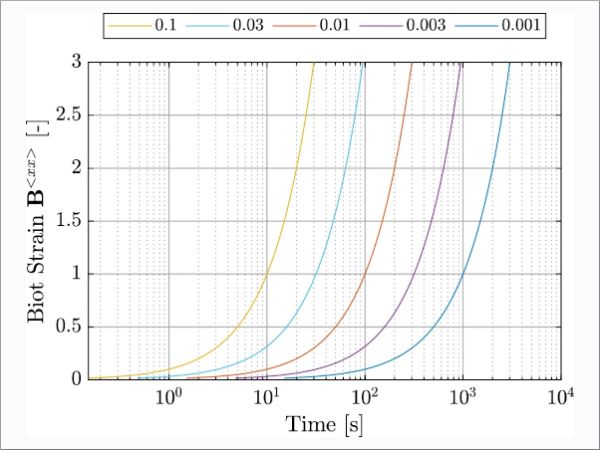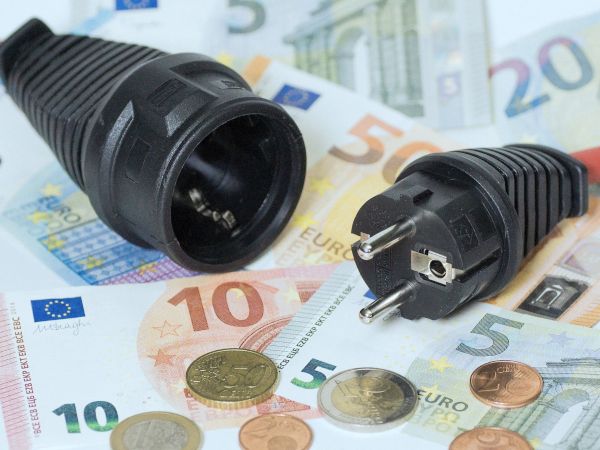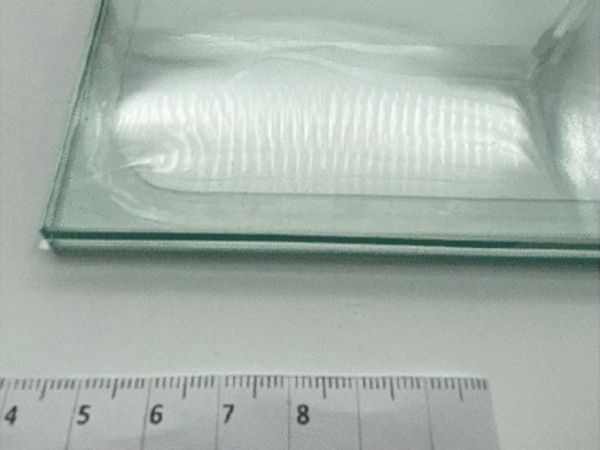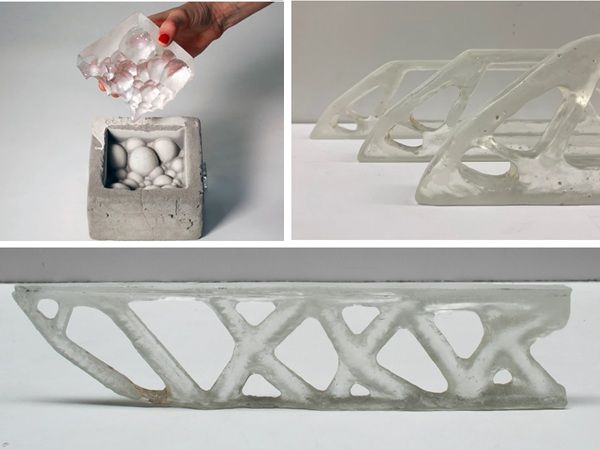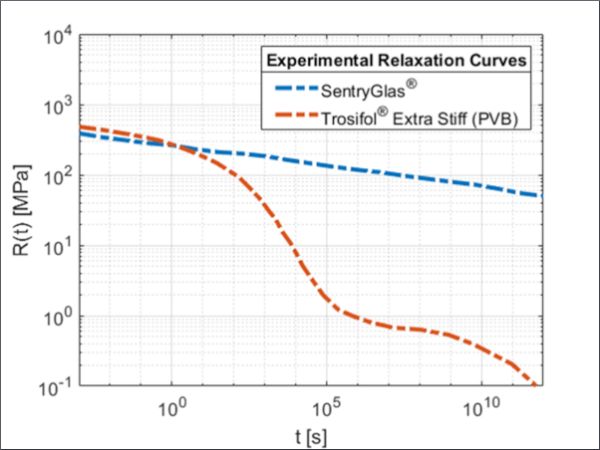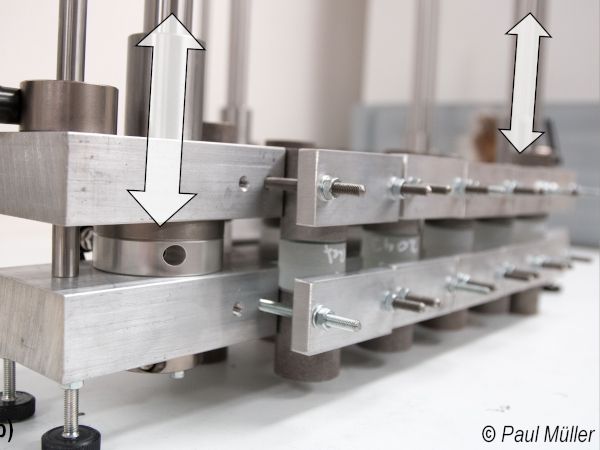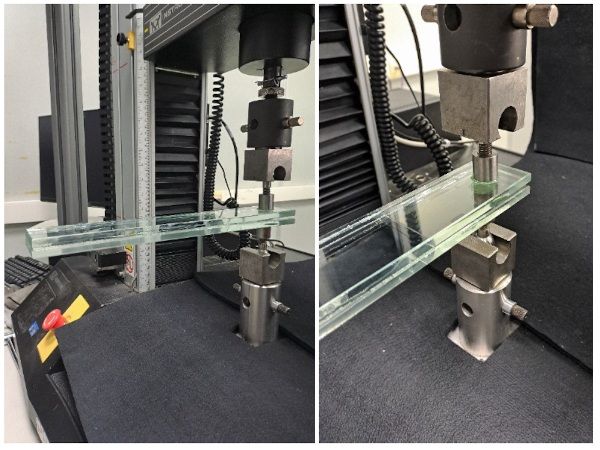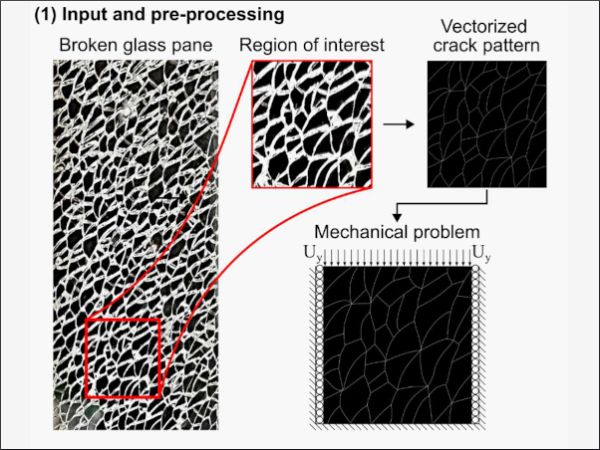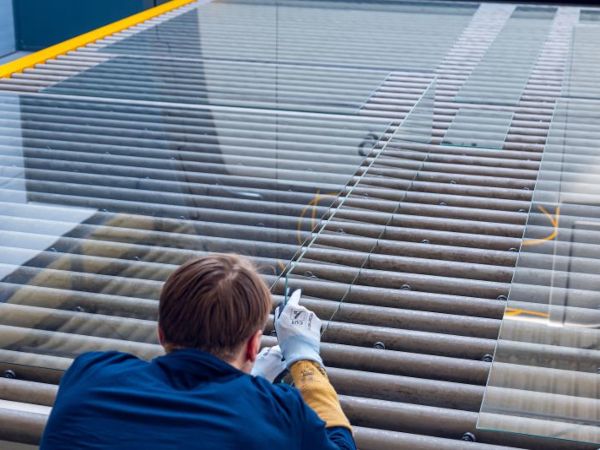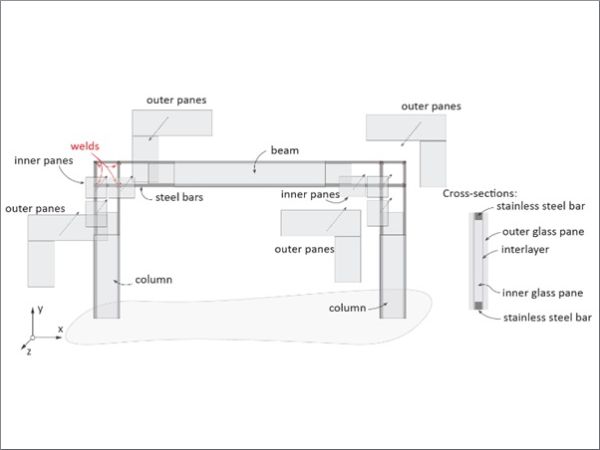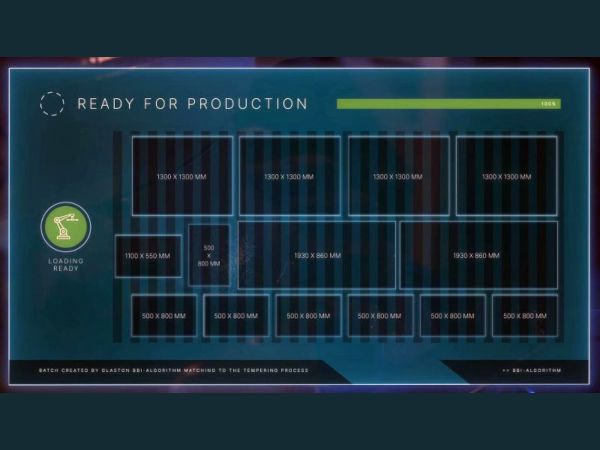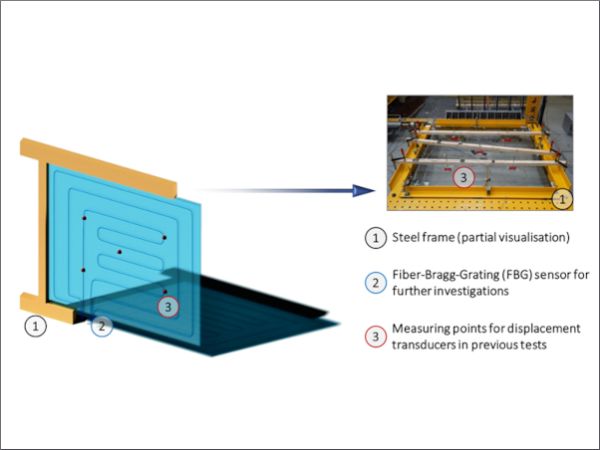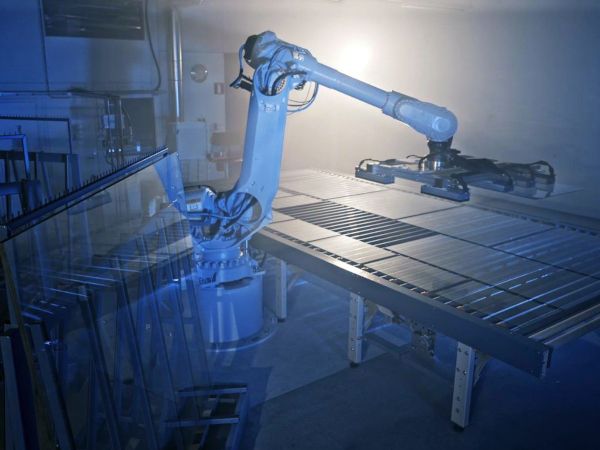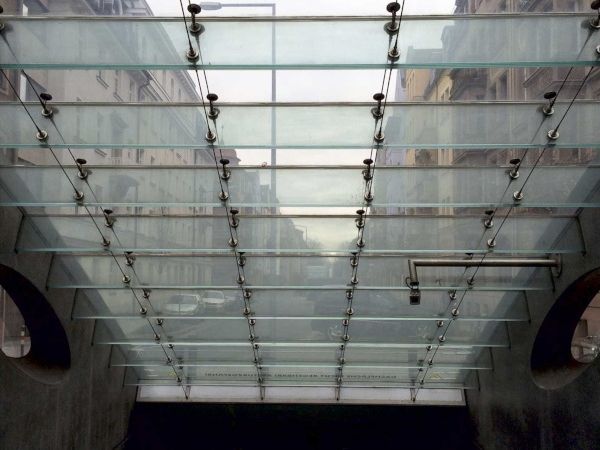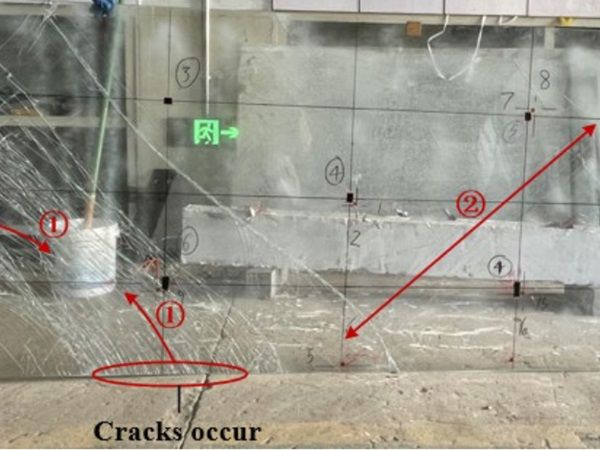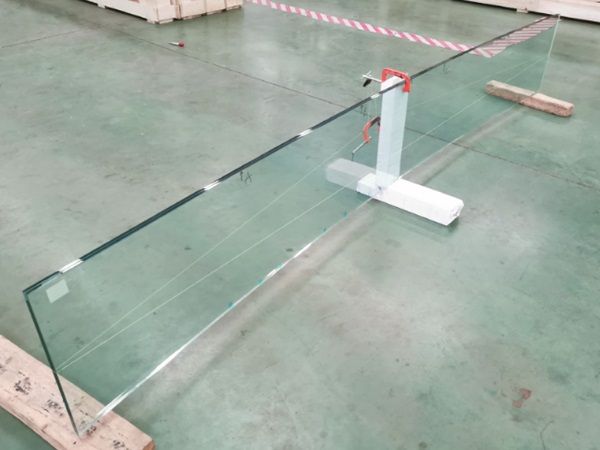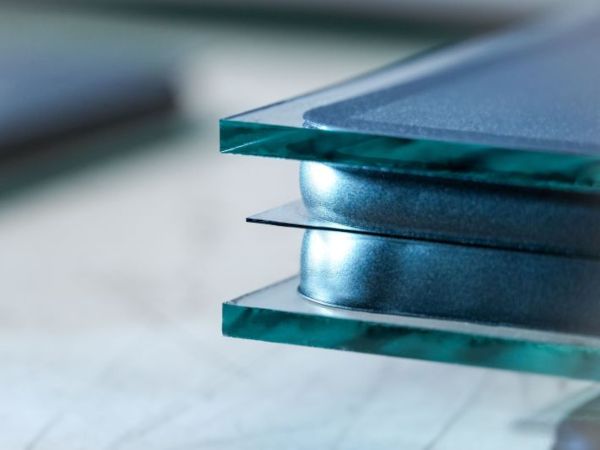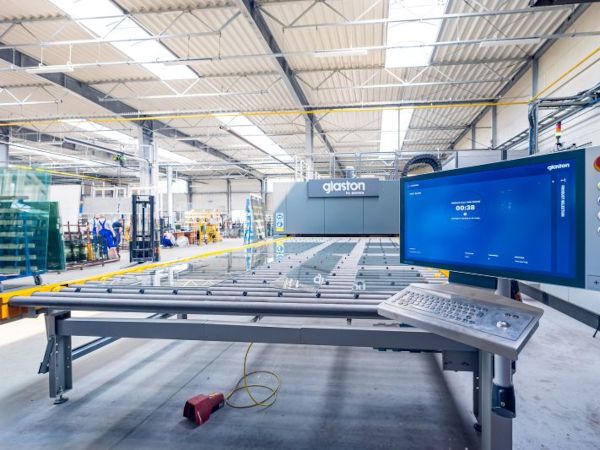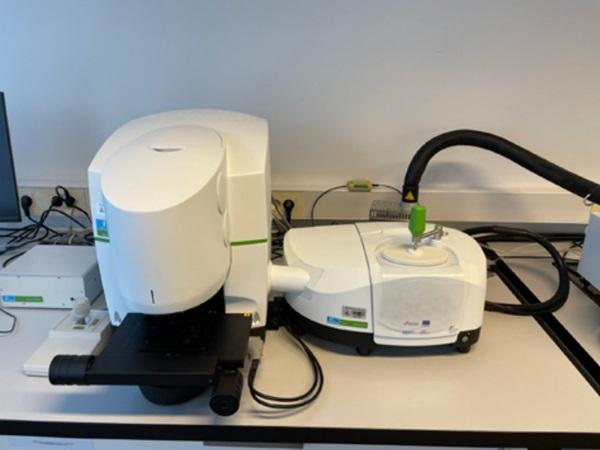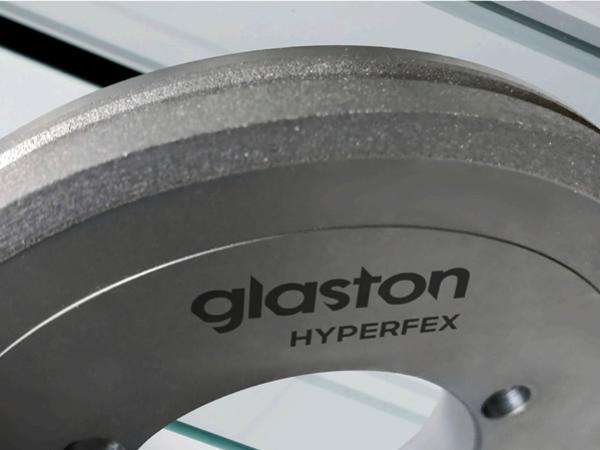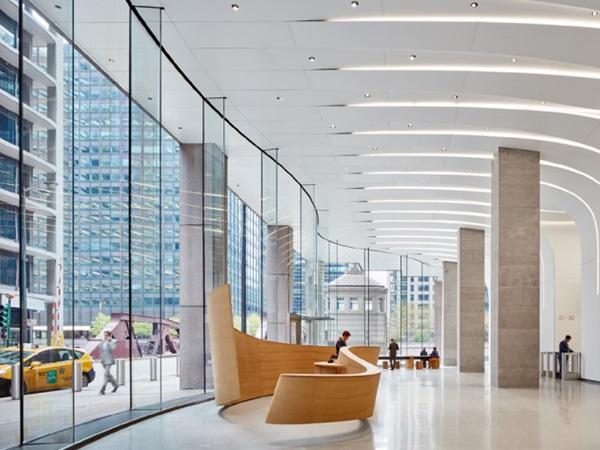Others also read
| The aim of this work is the mechanical description of the time-dependent behavior of Polyvinylbutyral (PVB) under large deformations considering quasi-static loading.
| Modern tempering technologies offer impressive energy efficiencies for glass processors. But, have you ever come across energy-saving claims that seem too good to be true?
| In this paper, two specific liquid cold-poured interlayer adhesives are investigated for their mechanical material properties in an extensive test regime.
| Glass casting displays great forming potential allowing for the realisation of three-dimensional glass elements of virtually any shape and size, as showcased in glass art.
| Minor fluctuations in the tempering process of architectural glass lead to residual stress differences resulting in birefringence and undesired optical iridescence, also known as anisotropy effects.
| We discuss a novel approach, based on fractional calculus with a non-uniform time discretization, to numerically simulate interlayer viscoelastic behaviour and associated time-dependent deformation of laminated glass.
| Adhesion tests conducted on laminated glass include pure shear and tensile loading tests.
| The objective of the present work is the development and testing of a robust numerical model that can naturally introduce the generated crack pattern into virtual specimens and manage the interaction among many fragments.
| The latest Glastory blog explores the evolving role of automation in glass processing, highlighting examples of how it is transforming efficiency in the industry.
| This paper focuses on a numerical investigation of the in-plane behavior of an innovative steel-reinforced glass frame prototype, designed to incorporate (partially) UV-curable beam-column connections.
| What glass processes gain the most from automation? In this blog, we’ll focus on some of the particularly promising application areas.
| This paper introduces the concept of a numerical sensor as a key element for creating a hybrid digital twin focused on the monitoring of load-bearing glass façades.
| When finding, training and retaining personnel for routine jobs is a challenge, processing automation offers a game-changing solution.
| This paper presents investigations on a novel approach for post-tensioning laminated glass beams with adhesively bonded iron-based shape memory alloy tendons along both longitudinal glass beam edges.
| In this paper, the anticlastic cold bending test was conducted to explore the influence of various factors, including aspect ratio, scale and composition of the plates.
| This paper investigates the post-fracture spring-back effect and the post fracture behaviour in warm bent glass, aiming to assess its safe use in structural glass applications.
| In this latest Glastory blog, Uwe Risle explains why thin triple IG units are gaining popularity and what the key differences are between thin triple IGUs and other insulating glass types.
| The latest Glastory blog gives insights on the experiences of the tempering process Autopilot users.
| The research presents advantages and disadvantages for each different load type regarding interlayer chemical response.
| Today talking about the trends, challenges, and innovations of flat glass lamination on Glastory.
| This contribution introduces concepts for prestressing laminated glass beams with Fe-SMA tendons adhesively or mechanically connected to the glass beams.
| In the latest Glastory blog post, Per Jensen analyzes the holistic approach to grinding.
Author: Per Jensen | Glaston
Source: glastory.net
Author: Per Jensen | Glaston
Source: glastory.net
| The objective of this study is to understand the response of laminated glass under high-rate bending in the laboratory at rates representative of blast loading.
| The redeveloped CME Center lobby is defined by a striking, wavelike 24’ tall glass façade.

